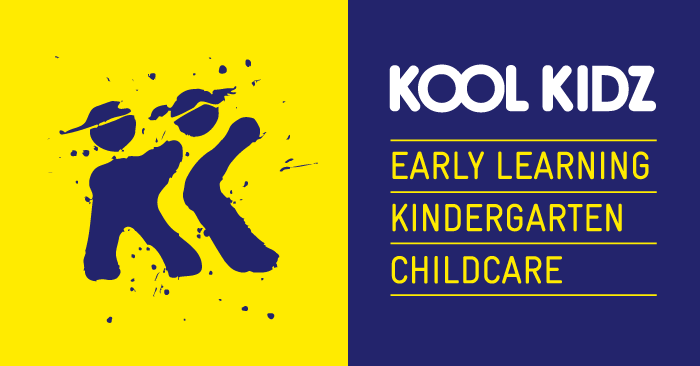In many homes and early childhood settings, the act of apologising is often seen as a necessary step toward repairing relationships and teaching social responsibility. But when children are told to “say sorry,” does it help them truly understand the impact of their actions and learn from their mistakes? Or are these apologies more about compliance than cultivating empathy?
“Say you’re sorry” is a familiar phrase, often delivered in an attempt to foster social harmony and build accountability, usually closely followed with “now say sorry like you mean it” which would suggest the first time, and most likely the second time the child said sorry, it was purely because it was required, not because it was felt.
As educators and parents, we must consider whether requiring children to apologise truly cultivates empathy, understanding and accountability, or if it reduces the act of apologising to a hollow social ritual.
If children aren’t required to apologise, how exactly do they learn to recognise and learn from their mistakes?
If children aren’t required to apologise, how exactly do they learn to recognise and learn from their mistakes?
As educators, it’s important to consider whether forcing a child to say “sorry” truly fosters empathy and understanding or if it reduces apologies to mere social conventions, devoid of genuine care or regret.
Contemporary research suggest that insisting on apologies without guiding children toward an authentic understanding of their actions may do more harm than good.
“While we can force a child to say sorry, it doesn’t mean that they feel remorse.” Dr. Deborah MacNamara, Counsellor
Focusing solely on compliance can lead to insincere apologies, or fauxpologies, undermining the development of genuine empathy and emotional intelligence.
The Problem with Fauxpologies
Forced apologies often sound hollow because they lack the emotional depth that should accompany the words. Requiring children to say “sorry” to maintain social order or teach them the “right” behaviour can be counterproductive if the child doesn’t truly feel remorse. Developmental science shows that authentic caring and empathy are hardwired into our emotional system from birth, but they require nurturing to fully emerge.
“The capacity for empathy is innate, a part of our biological makeup, but it requires the right conditions and nurturing relationships to fully unfold and become an integral part of our behaviour.” Gordon Neufeld, developmental psychologist
This nurturing comes through secure attachments and meaningful relationships, not through forced compliance with social norms.
The essence of integrity and authenticity lies in the alignment of one’s words and feelings. Compelling children to offer apologies without considering their emotional state risks encouraging a disconnect between their words and true emotions. This disconnect can lead to a form of emotional dishonesty, where children learn to say what is expected rather than what they genuinely feel. Such forced performances may wear thin under pressure, leading to confusion, frustration and resentment, rather than fostering the caring and empathetic behaviour we hope to cultivate.
Cultivating Genuine Caring and Empathy
To move beyond fauxpologies, we need to focus on nurturing the underlying emotions that drive genuine apologies. Children will naturally care for others when they are filled with caring feelings themselves. But where does this capacity to care come from? It is activated through attachment—when children feel securely attached and cared for, their innate ability to care for others blossoms.
“Empathy is part of our biological inheritance. We are born with the potential for empathy, but its expression is deeply influenced by our early experiences and relationships.” Dr. Darcia Narvaez, researcher in moral development and author
When children feel secure in their relationships, their emotional system comes to life, allowing them to connect deeply with others.
Instead of commanding a child to say “sorry,” educators could lead children to their caring feelings. For instance, if a child has hurt a peer, rather than insist an apology, we might say, “Can you take a moment to look at your friend’s face? How do you think they might be feeling right now?” This approach encourages children to reflect on the impact of their actions and fosters a deeper understanding of empathy. We might explore their feelings By focusing on the child’s emotions first, we help them express what they are struggling with and guide them toward an authentic apology when they are ready.
The Role of Modelling and Emotional Regulation
“Most human behaviour is learned observationally through modelling: from observing others, one forms an idea of how new behaviours are performed, and on later occasions, this coded information serves as a guide for action.” Albert Bandura, Psychologist
Children learn by observing the behaviour of adults around them. Modelling genuine apologies and empathetic behaviour is more effective than insisting on insincere apologies. When children witness adults offering thoughtful, heartfelt apologies, they learn that apologies are not just social conventions but meaningful expressions of regret and accountability. This modelling helps children internalise the values of empathy and reflection, laying a foundation for authentic social and emotional development.
In addition to modelling, scaffolding emotional regulation is crucial in helping children navigate their feelings and interactions. Instead of focusing solely on the act of apologising, we can teach children to recognise and manage their emotions. This approach not only promotes awareness but also creates a culture where children feel comfortable expressing and regulating their emotions. In such an environment, apologies become a natural outcome of genuine remorse rather than a mandated performance.
In early childhood education, our goal should not be to force children to say the right words but to nurture their capacity to care and empathise with others. By focusing on emotional connection, modelling genuine behaviour, and fostering a culture of empathy, we can help children develop the social and emotional skills they need to form meaningful, positive relationships.
Instead of relying on fauxpologies, let’s guide our children toward authentic expressions of remorse that come from a place of true understanding and caring.
